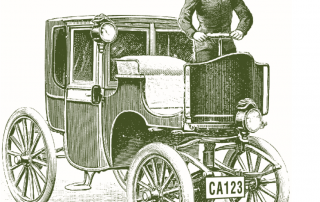On-Street Parking Spaces for Shared Cars
Andrea Osgood
In addition to their many advantages, cars also cause problems: traffic congestion, air pollution, energy consumption, and even reduced mobility for those who don’t own a car. Carsharing is a new form of vehicle ownership that can help address these problems. Membership in a carsharing organization increases access to cars but also encourages judicious use of them.
In essence, carsharing converts the high fixed costs of owning a car (purchase price, insurance, taxes, and maintenance) into smaller units—the per-hour or per-mile price of driving a car. By spreading the fixed costs of a car over many users, carsharing makes automobile travel an option for those who cannot afford to buy their own vehicle. But because users pay a high marginal cost for every hour or mile they drive, carsharing also gives members a strong incentive to drive less. In this way, carsharing can both increase mobility for people who might otherwise be carless and also reduce auto travel among members who previously owned their own car. This reduction in auto travel carries a host of benefits to society, from reducing local traffic congestion to slowing global climate change.

